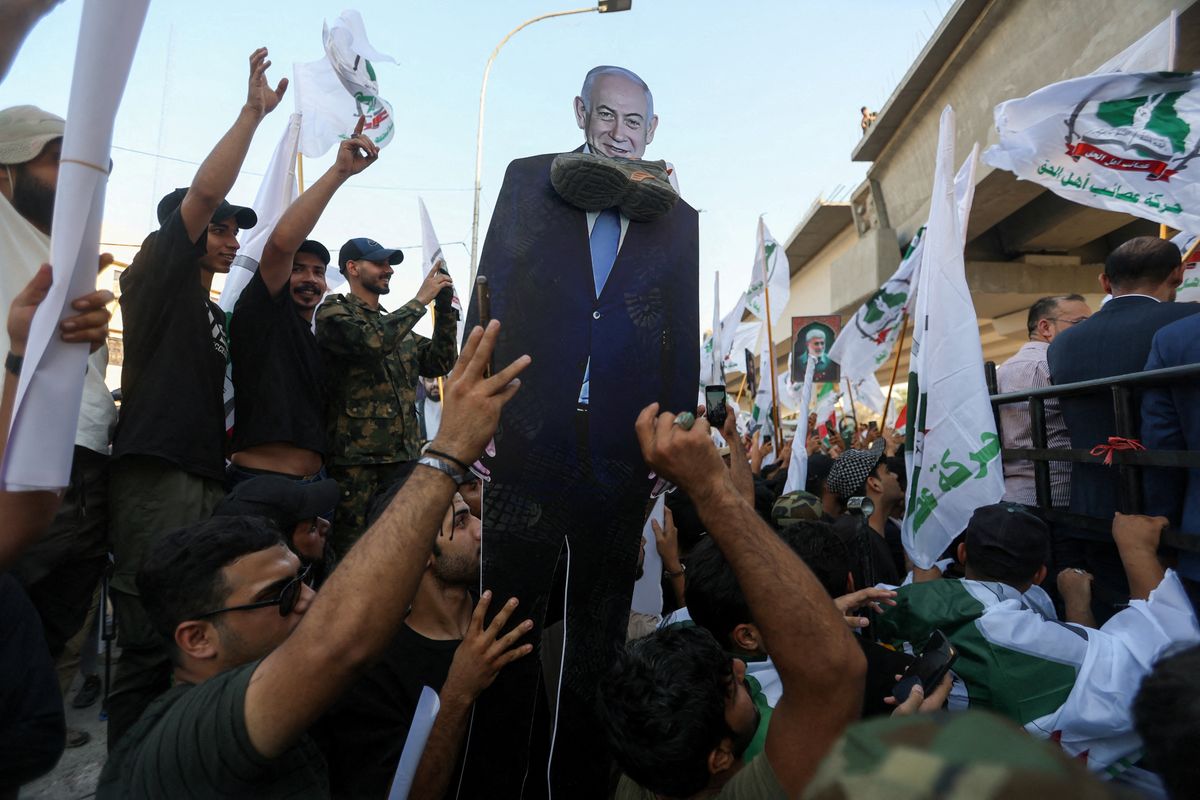UAE, Pakistan among 20 Muslim nations demanding Iran-Israel negotiations
Military means cannot bring about a lasting resolution to the ongoing crisis, says joint statement
News Desk
The News Desk provides timely and factual coverage of national and international events, with an emphasis on accuracy and clarity.

Iraqi Muslims hold a cutout of Israeli Prime Minister Benjamin Netanyahu as they attend a protest against Israeli strikes on Iran, in Baghdad, Iraq, June 16, 2025.
Reuters
Nations cals for 'swift return to the path of negotiations'
Stress need for Middle East Zone free of nuclear weapons and other weapons of mass destruction
Warn against attacks on nuclear facilities
Pakistan and UAE have joined a list of 20 Muslim nations who have called for an immediate halt to Israeli military actions against Iran and urged a return to negotiations as the only path to peace.
The statement comes amid spiraling regional violence, with both Israel and Iran launching strikes against each other.
Pakistan's Foreign Ministry released the joint statement on Tuesday following consultations among Muslim-majority nations.
“The military means cannot bring about a lasting resolution to the ongoing crisis,” the foreign ministers said, urging “a swift return to the path of negotiations.”
They described Israel’s actions as a “dangerous escalation, which threatens to have serious consequences on the peace and stability of the entire region.”
Weapons-free Mideast zone
A key focus of the joint statement was nuclear non-proliferation. The ministers called for the urgent creation of “a Middle East Zone free of nuclear weapons and other weapons of mass destruction… without exception,” and urged all regional states to join the Nuclear Non-Proliferation Treaty (NPT).
They also warned against attacks on nuclear facilities under international inspection, stating that “such acts constitute a violation of international law and international humanitarian law, including the 1949 Geneva Conventions.”
On maritime security, the ministers stressed “the importance of safeguarding the freedom of navigation in international waterways per the relevant rules of international law, and refraining from undermining maritime security.”
The bloc reaffirmed that diplomacy and the UN Charter must remain the framework for regional peace, stating that “dialogue, and adherence to the principles of good neighborliness… remain the only viable path to resolving crises in the region.”
The statement was backed by a wide array of countries — from Turkey, Egypt, and Saudi Arabia to Brunei, Djibouti, and Mauritania — reflecting a rare show of unity among Muslim-majority states over the worsening Iran-Israel conflict.
Hundreds dead
Since the Israeli strikes on Friday, the two Middle Eastern rivals have exchanged blows, with Iranian officials reporting over 220 deaths, mostly civilians, while Israel said 24 civilians were killed.
Tehran denies seeking nuclear weapons and has said it has the right to develop nuclear technology for peaceful purposes, including enrichment, as a party to the nuclear treaty.
Israel, which is not a party to the nuclear treaty, is the only country in the Middle East widely believed to have nuclear weapons.










Comments
See what people are discussing